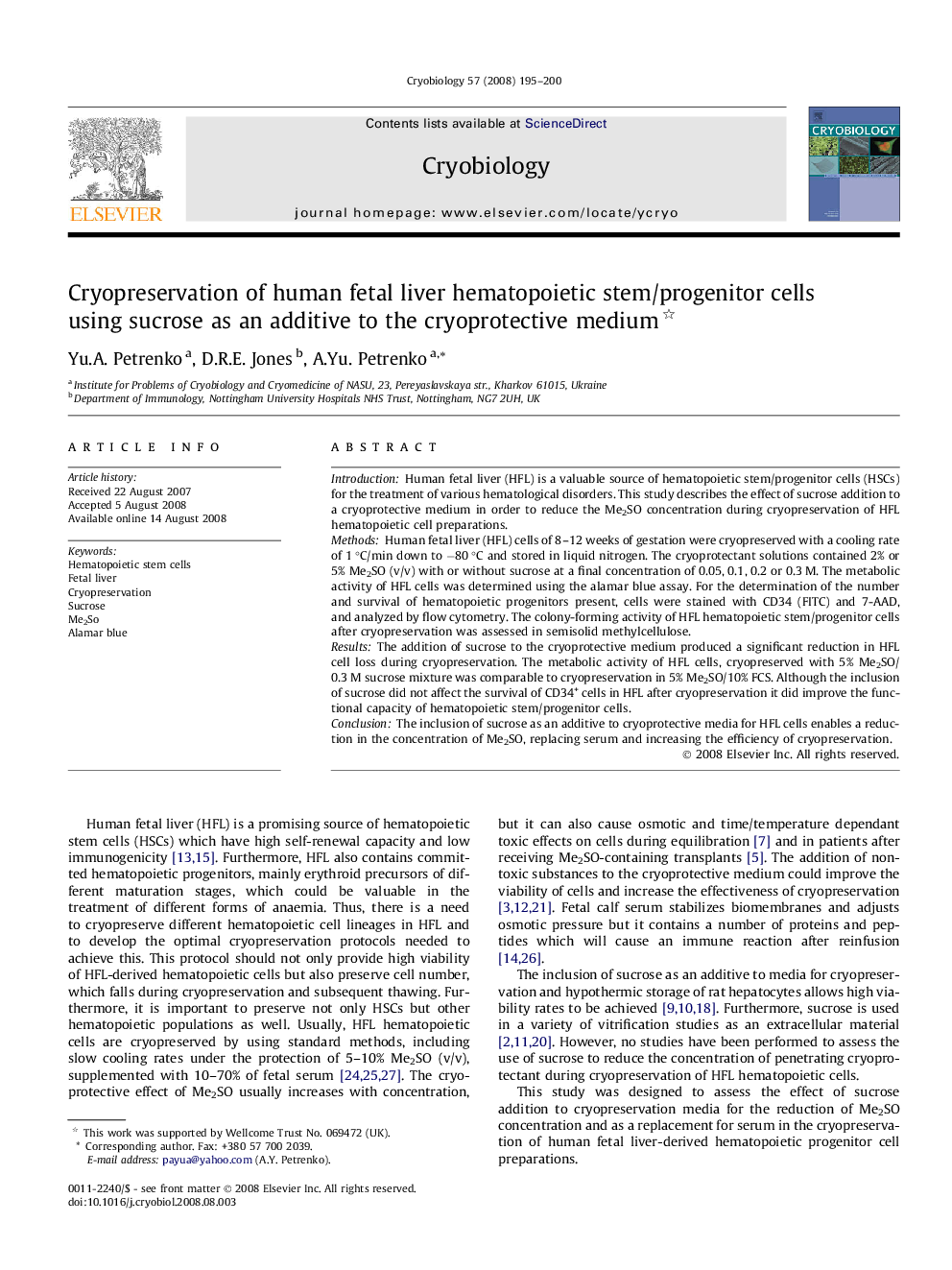| Article ID | Journal | Published Year | Pages | File Type |
|---|---|---|---|---|
| 2168890 | Cryobiology | 2008 | 6 Pages |
IntroductionHuman fetal liver (HFL) is a valuable source of hematopoietic stem/progenitor cells (HSCs) for the treatment of various hematological disorders. This study describes the effect of sucrose addition to a cryoprotective medium in order to reduce the Me2SO concentration during cryopreservation of HFL hematopoietic cell preparations.MethodsHuman fetal liver (HFL) cells of 8–12 weeks of gestation were cryopreserved with a cooling rate of 1 °C/min down to −80 °C and stored in liquid nitrogen. The cryoprotectant solutions contained 2% or 5% Me2SO (v/v) with or without sucrose at a final concentration of 0.05, 0.1, 0.2 or 0.3 M. The metabolic activity of HFL cells was determined using the alamar blue assay. For the determination of the number and survival of hematopoietic progenitors present, cells were stained with CD34 (FITC) and 7-AAD, and analyzed by flow cytometry. The colony-forming activity of HFL hematopoietic stem/progenitor cells after cryopreservation was assessed in semisolid methylcellulose.ResultsThe addition of sucrose to the cryoprotective medium produced a significant reduction in HFL cell loss during cryopreservation. The metabolic activity of HFL cells, cryopreserved with 5% Me2SO/0.3 M sucrose mixture was comparable to cryopreservation in 5% Me2SO/10% FCS. Although the inclusion of sucrose did not affect the survival of CD34+ cells in HFL after cryopreservation it did improve the functional capacity of hematopoietic stem/progenitor cells.ConclusionThe inclusion of sucrose as an additive to cryoprotective media for HFL cells enables a reduction in the concentration of Me2SO, replacing serum and increasing the efficiency of cryopreservation.
